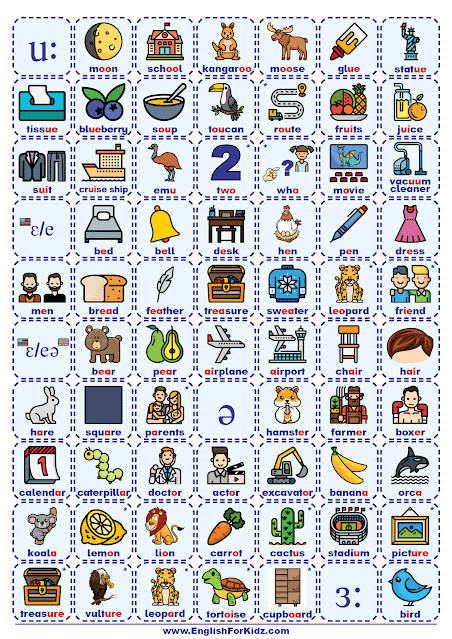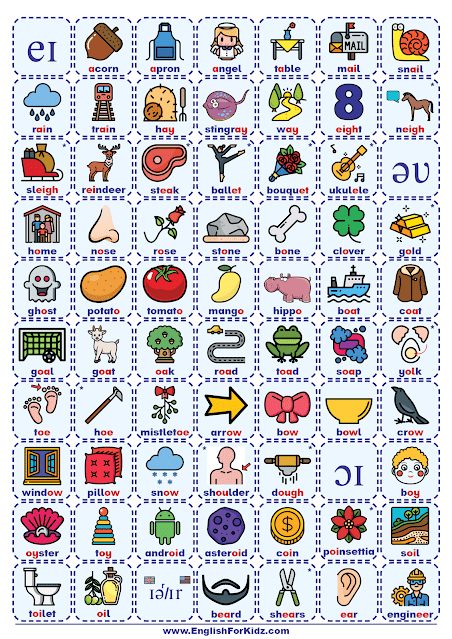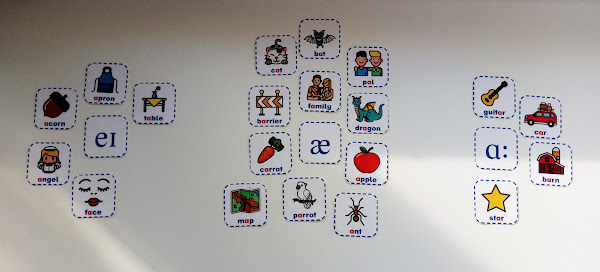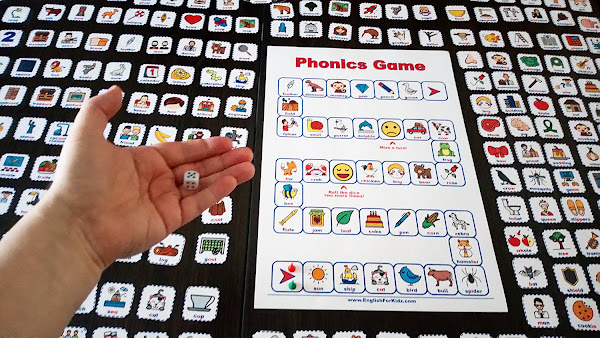Being an EFL teacher, I pay special attention to
teaching phonics to my students. Unlike native speakers, the kids who study English as a foreign language are not fully emerged into the language so they have a hard time figuring out how to pronounce many English words correctly. And we all know how crazy the English phonetics can be. When I show my students how the letter
o can make as many as 9 sounds in different words or introduce the letter combination
ou in such words as
soup, mouse, shoulder, couple, four, flour, journalist, carousel with 8 different pronunciations, they get a little bit puzzled. No wonder English phonics are often a major challenge for EFL and ESL students. That’s why I design all sorts of
printable phonics worksheets,
charts,
flash cards,
posters, and games to help my young students learn phonics in a fun and memorable manner.
I have recently designed a printable board game for my English classes dedicated to phonics. The purpose of the game is to help young English learners memorize basic phonics rules, exceptions and some tricky words as well as to correctly identify sounds and tell the difference between them. I designed 15 different game boards to play with more than 550 word cards.
 |
| One of 15 game boards designed for the phonics game. |
 |
| This game board is designed to learn digraphs and diphthongs. |
Phonics Game Rules
- Players roll the dice to see who goes first. The player who rolls the largest number goes first.
- Players roll the dice once on each turn and cover a space accordingly with a word card featuring the same sound formed with letters marked in red. Players should pronounce the words on the space and the card used to cover the space. Players skip spaces that are already covered.
- The player who covers a space with a wrong card must skip his/her turn.
- When players reach the last space (the one with a red arrow), they resume the game from the start until all spaces are covered with cards.
- The player who covers the last uncovered space wins.
 |
| There are more than 550 word cards available to players. |
Teachers can introduce the point system to the phonics game. If a player covers a space with a card featuring the sound made with the same letter or letter combination, he/she gets 1 point. If a player uses the card with the same sound formed with a different letter/letter combination, he/she gets 2 points. If a player correctly uses the card with an asterisk, he gets 3 points. In this case there is no need to resume the game to cover all the spaces as players only need to count the points after the first run.
 |
| Printable cards allow kids learn English phonics and memorize vocabulary. |
I decide how many cards to be used for the game depending on the students' level of English proficiency and whether they play individually or in teams. If they play in teams, I use as many cards as I can fit on the table.
 |
| Picture-based phonics cards represent common English phonics rules, interesting cases and some tricky words. |
The International Phonetic Alphabet
Being able to read the
International Phonetic Alphabet (IPA) is another important ability for those learning English as a foreign language. They have to consult dictionaries quite frequently, and many dictionaries use IPA characters to represent pronunciation of words. That’s why I designed
5 game boards and 47 cards featuring the IPA characters to help kids memorize which sounds those characters represent. When playing, students cover either the picture-based game boards with the IPA character cards or the IPA boards with picture cards.
 |
| One of the game boards designed to teach the International Phonetic Alphabet (IPA). |
 |
| Printable cards featuring the Printable International Phonetic Alphabet characters. |
Phonics Activities
I often use 550+ cards created for the phonics game to organize simple phonics learning activities in the classroom. Those activities include the odd one out game and all kinds of sorting and matching tasks.
 |
| The odd one out activity organized with the help of the printable phonics cards. |
 |
| The phonics sorting activity. |












lovely!
ReplyDeleteYour games are wonderful!!! Thank you so much for sharing!
ReplyDelete